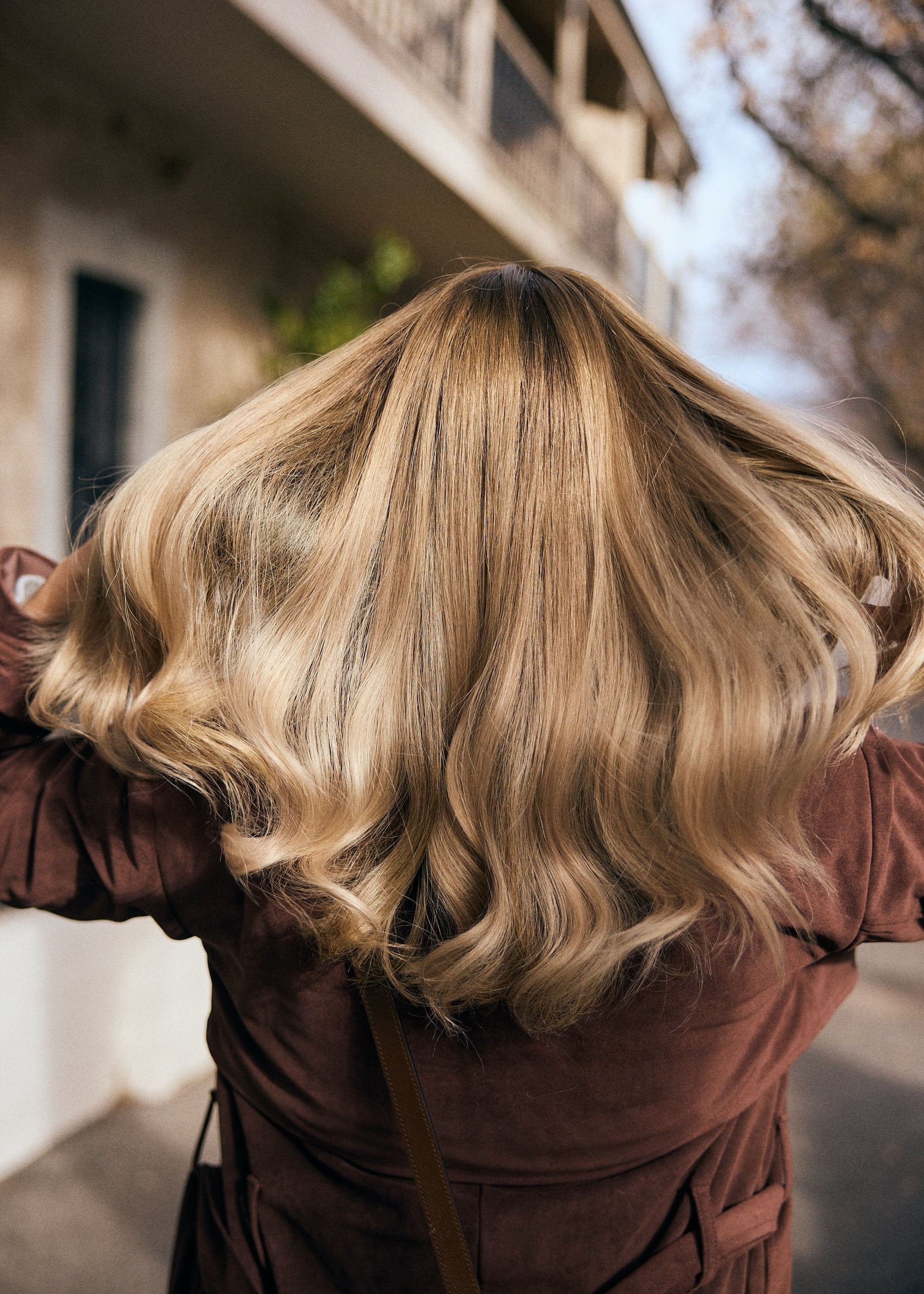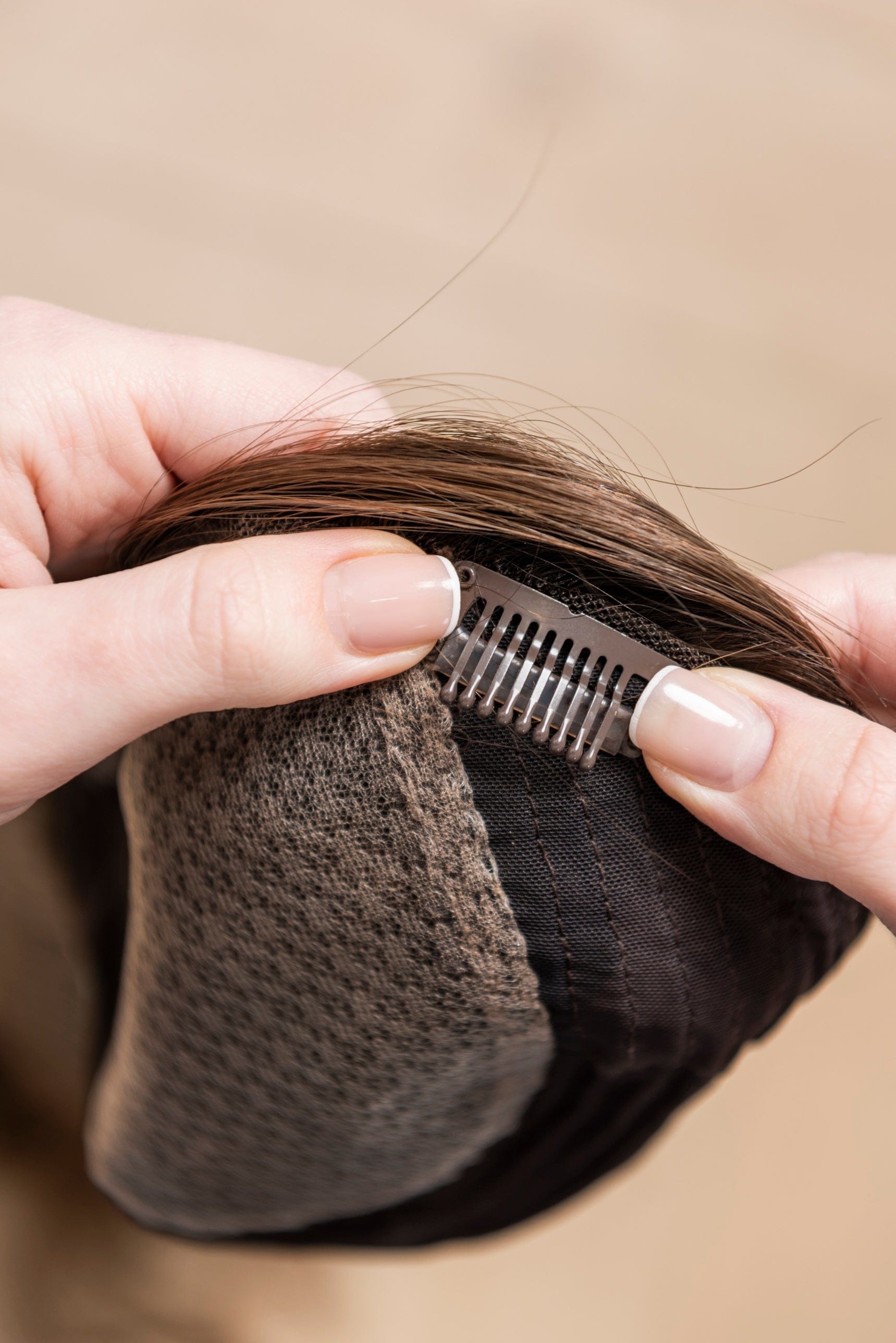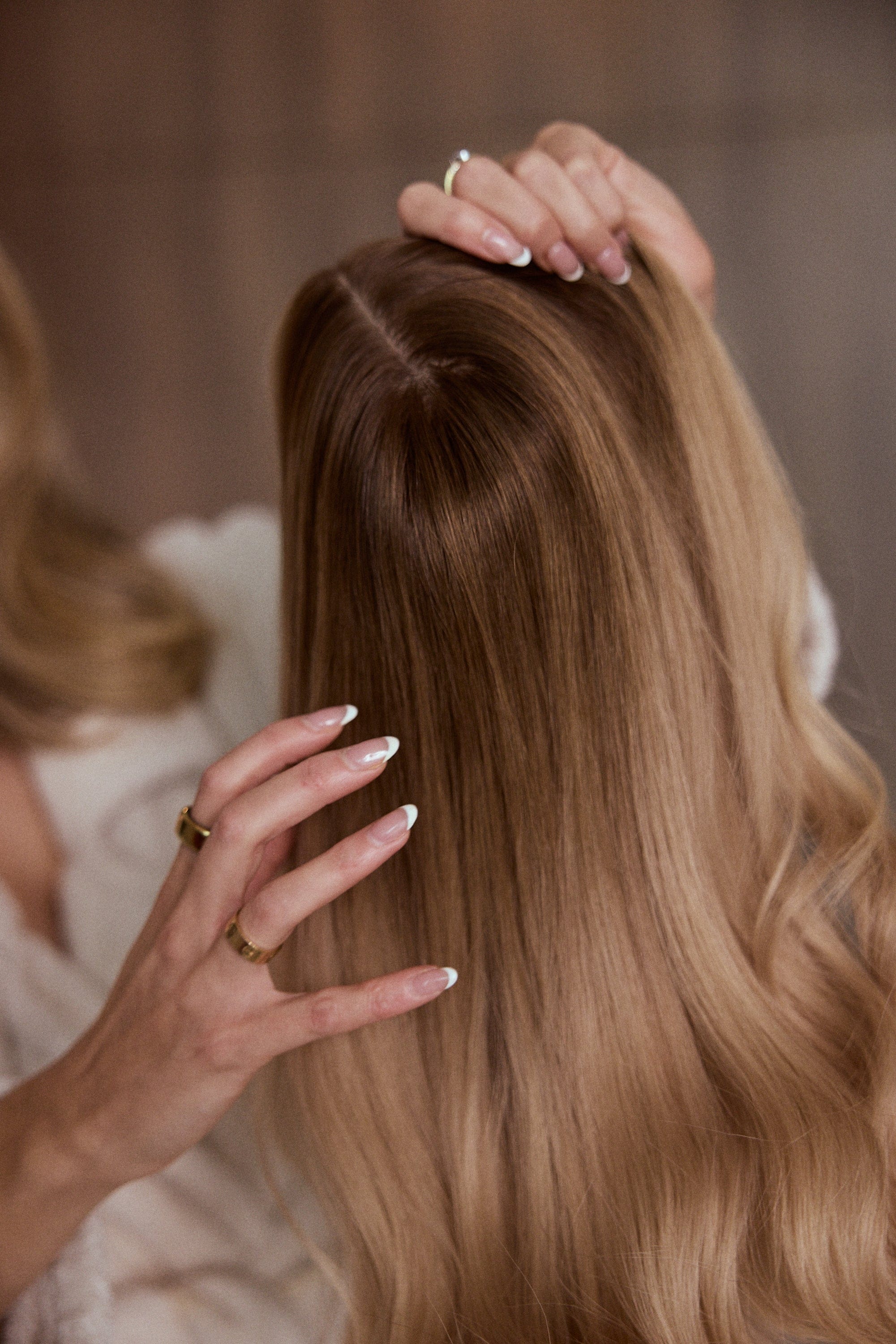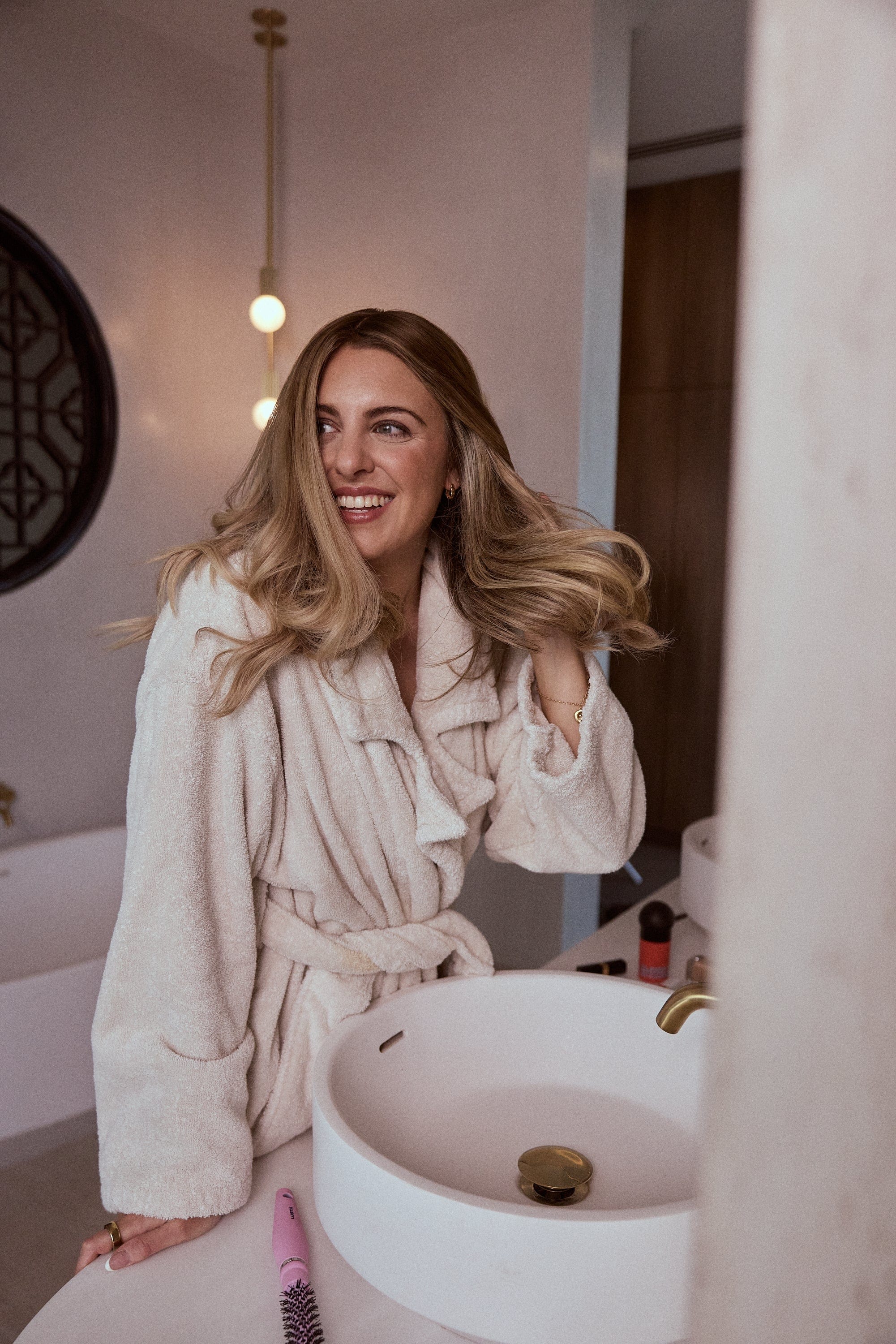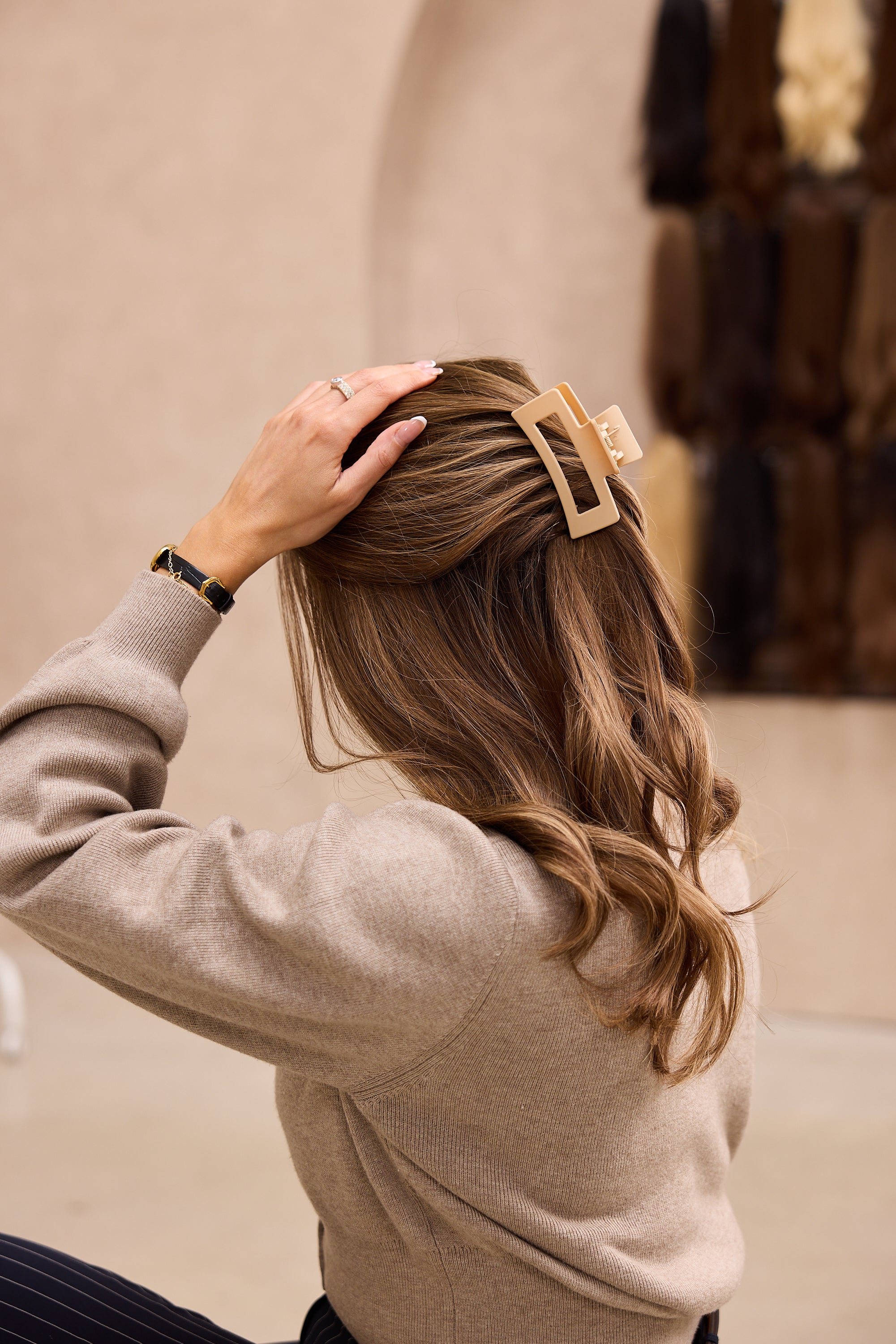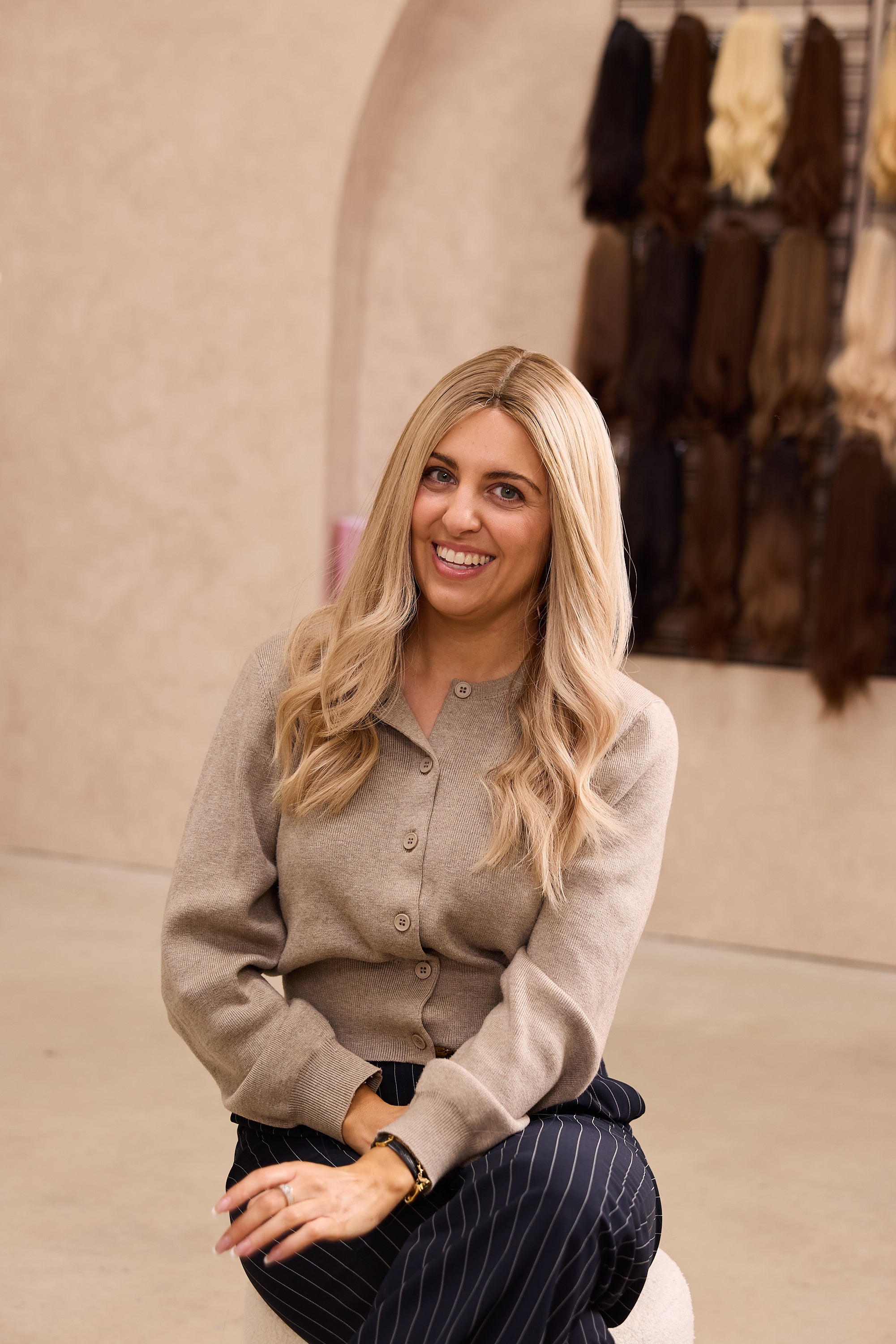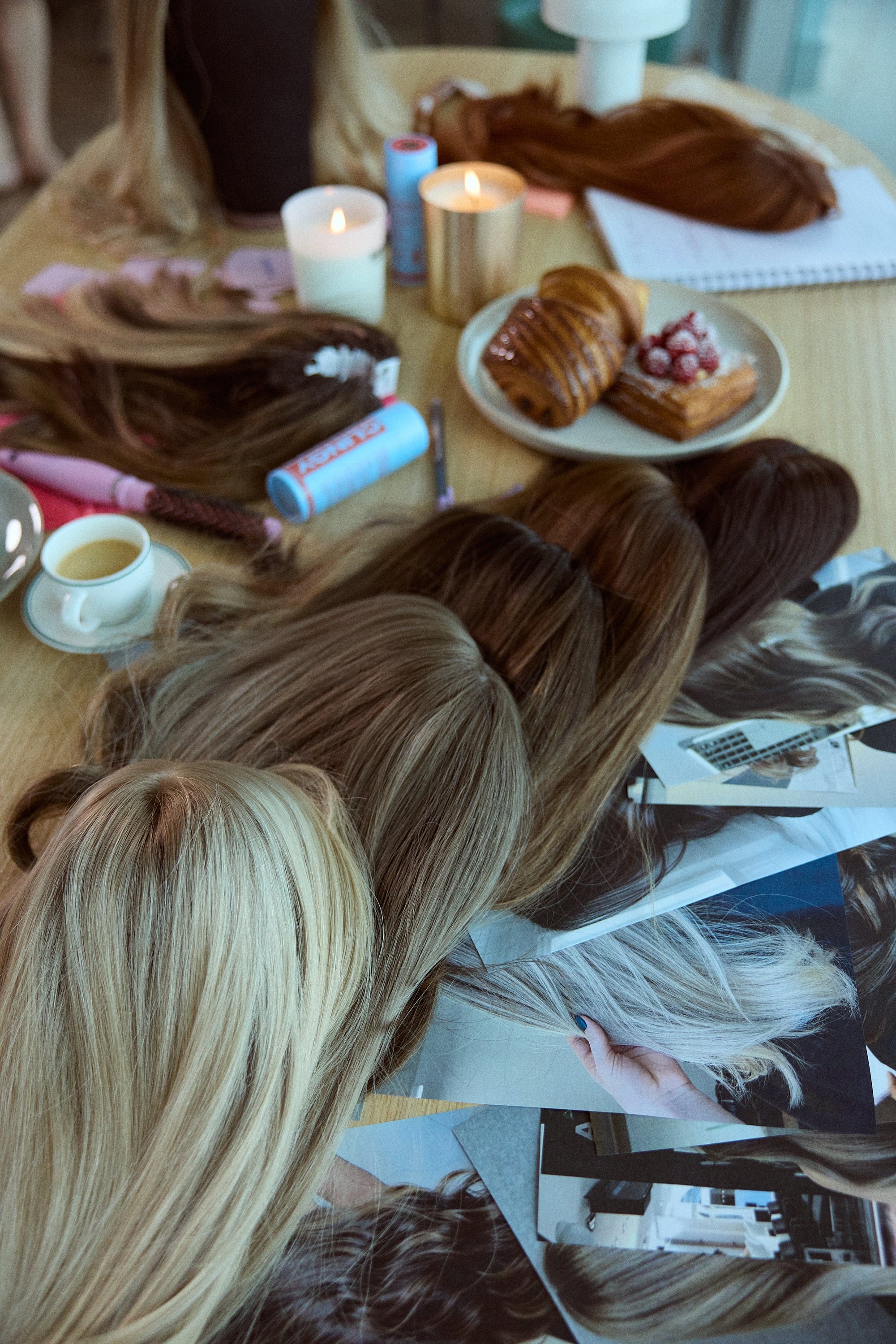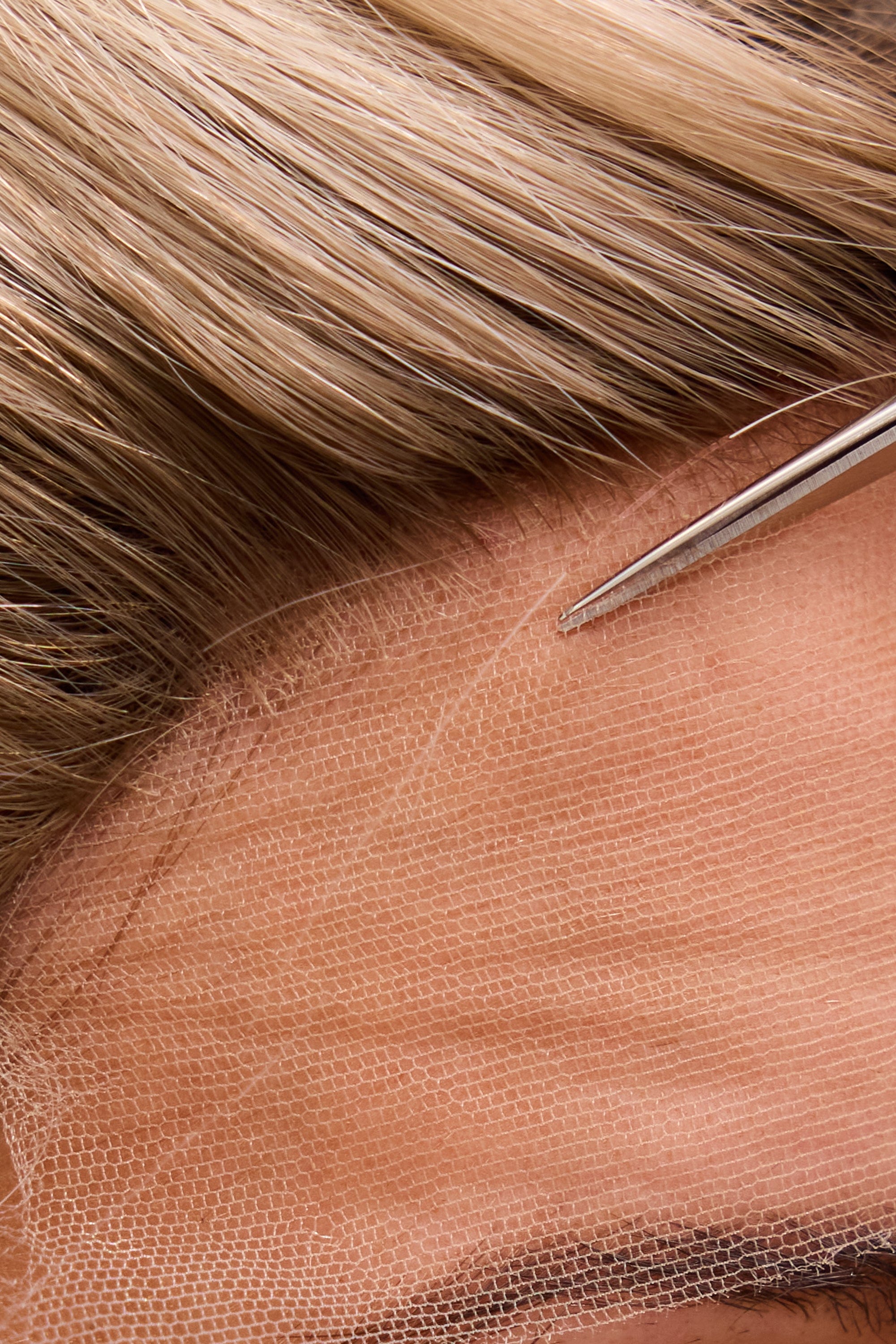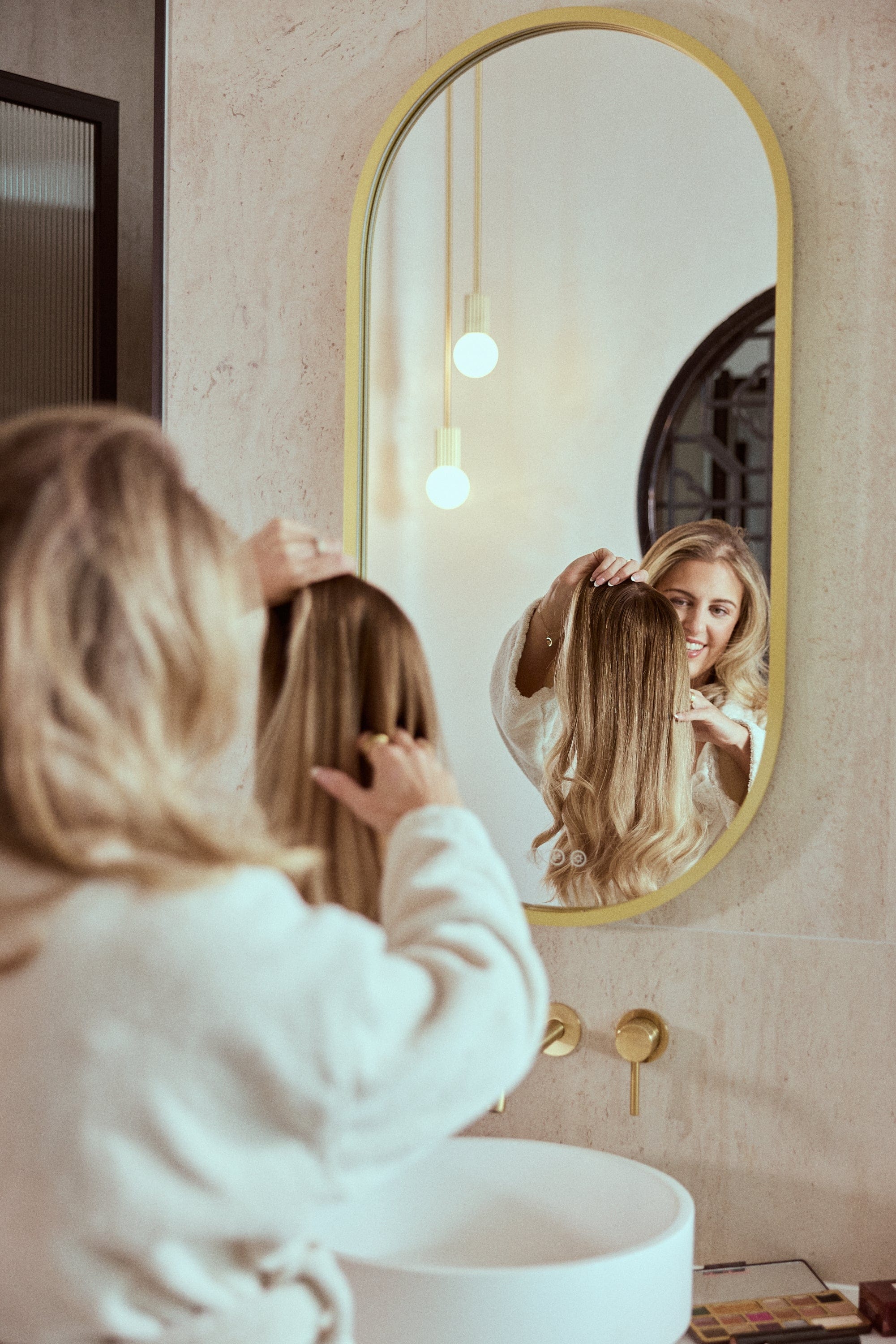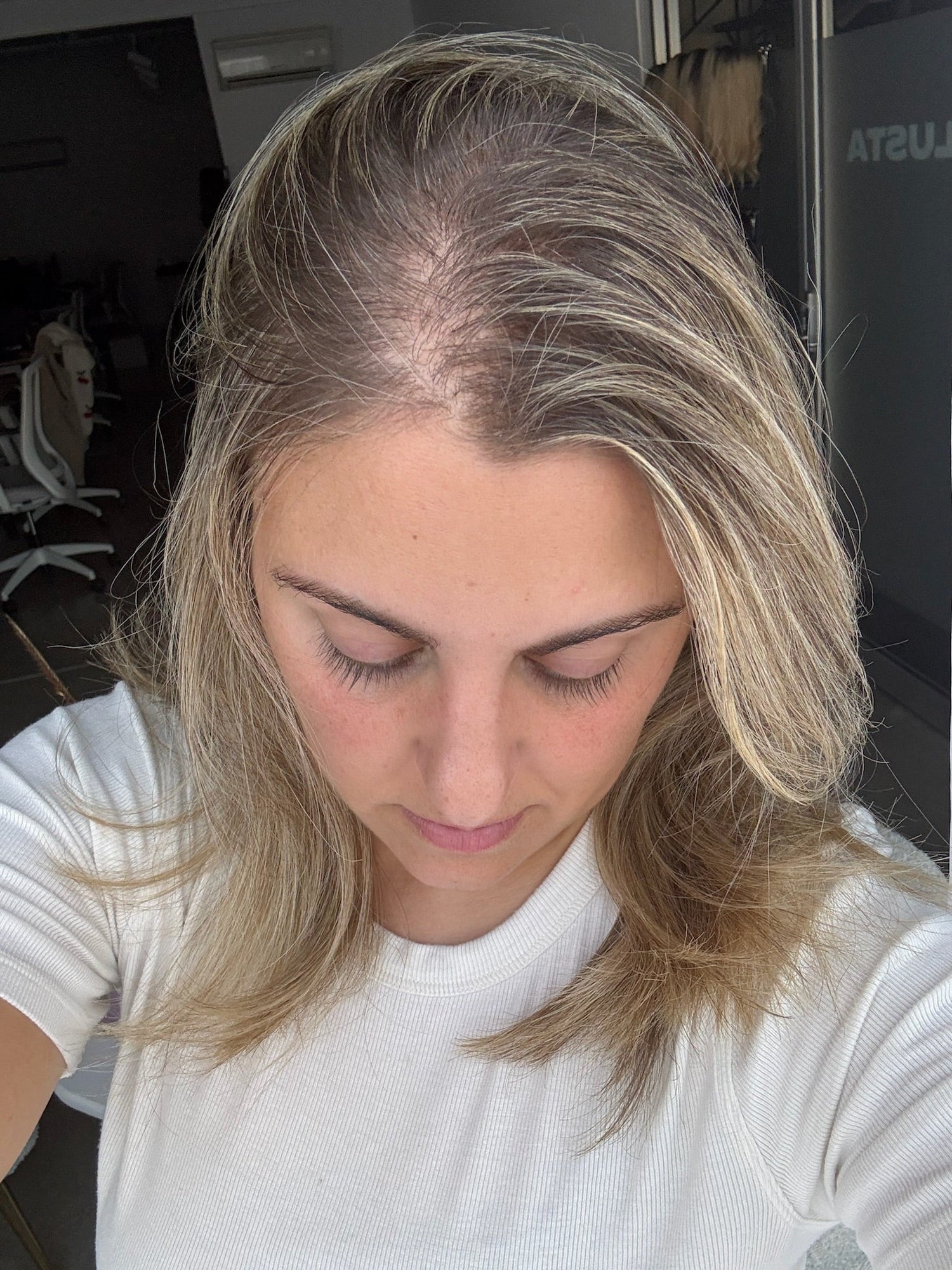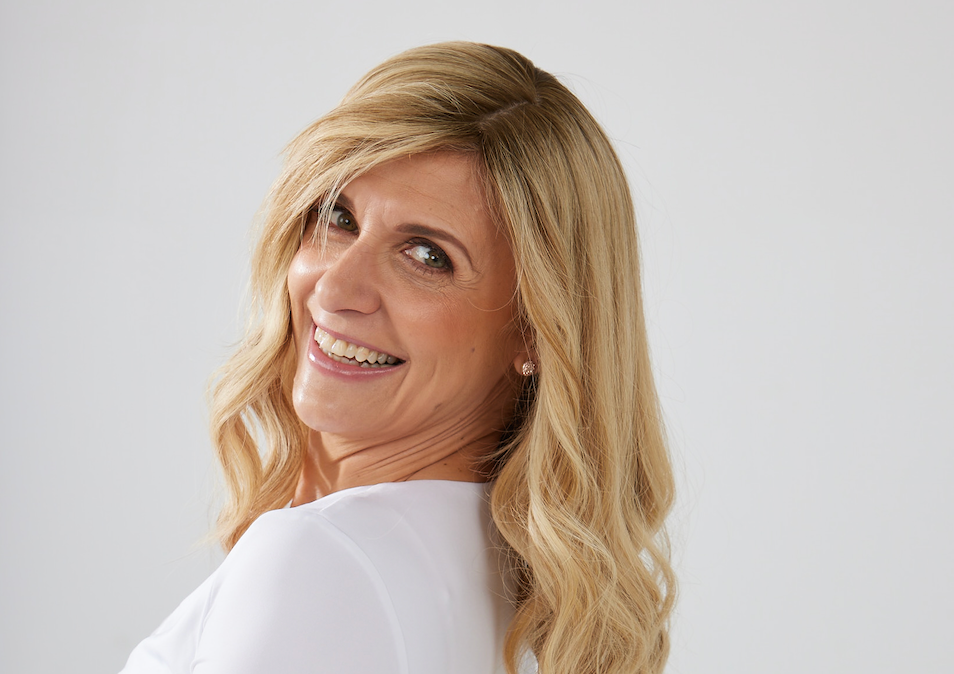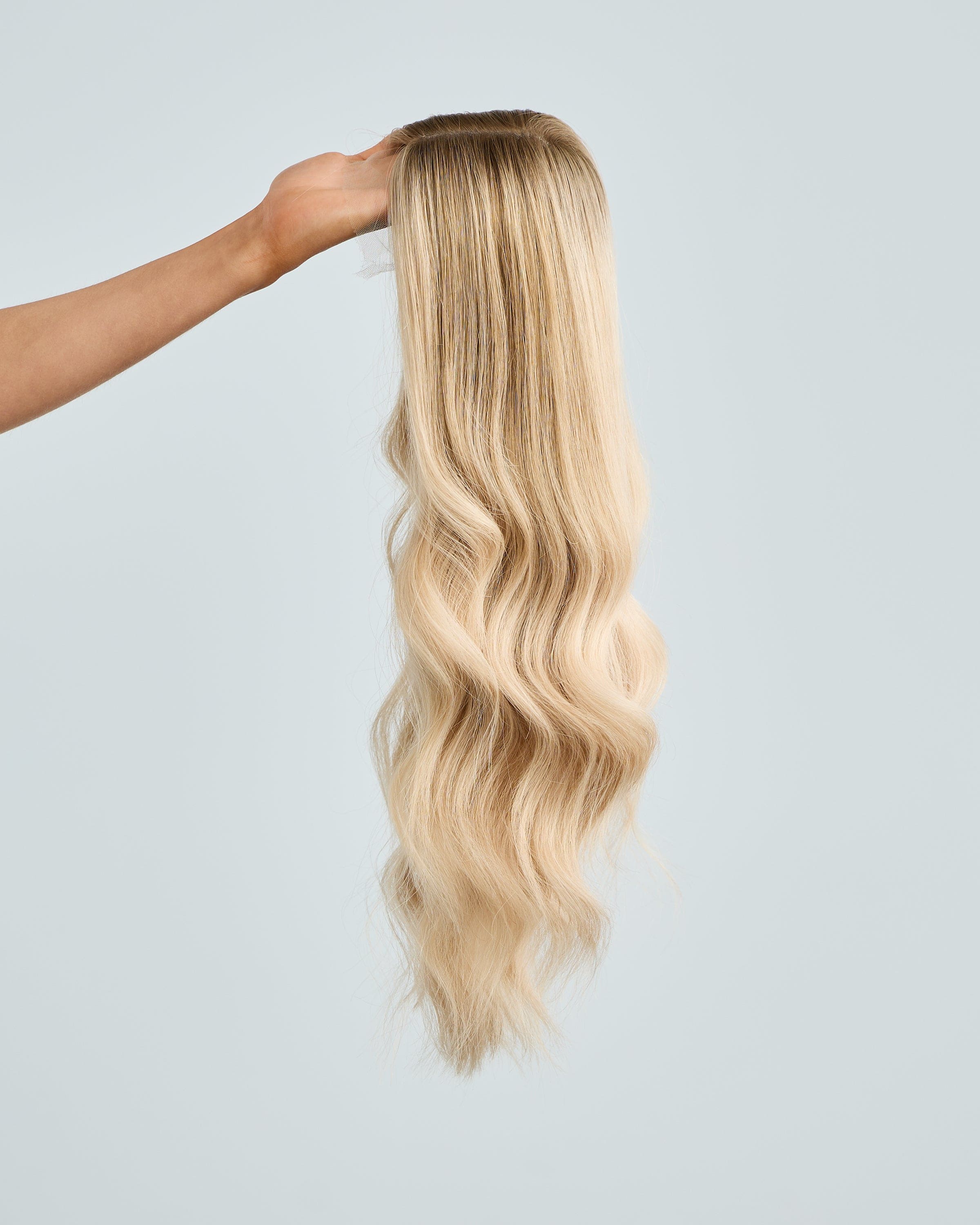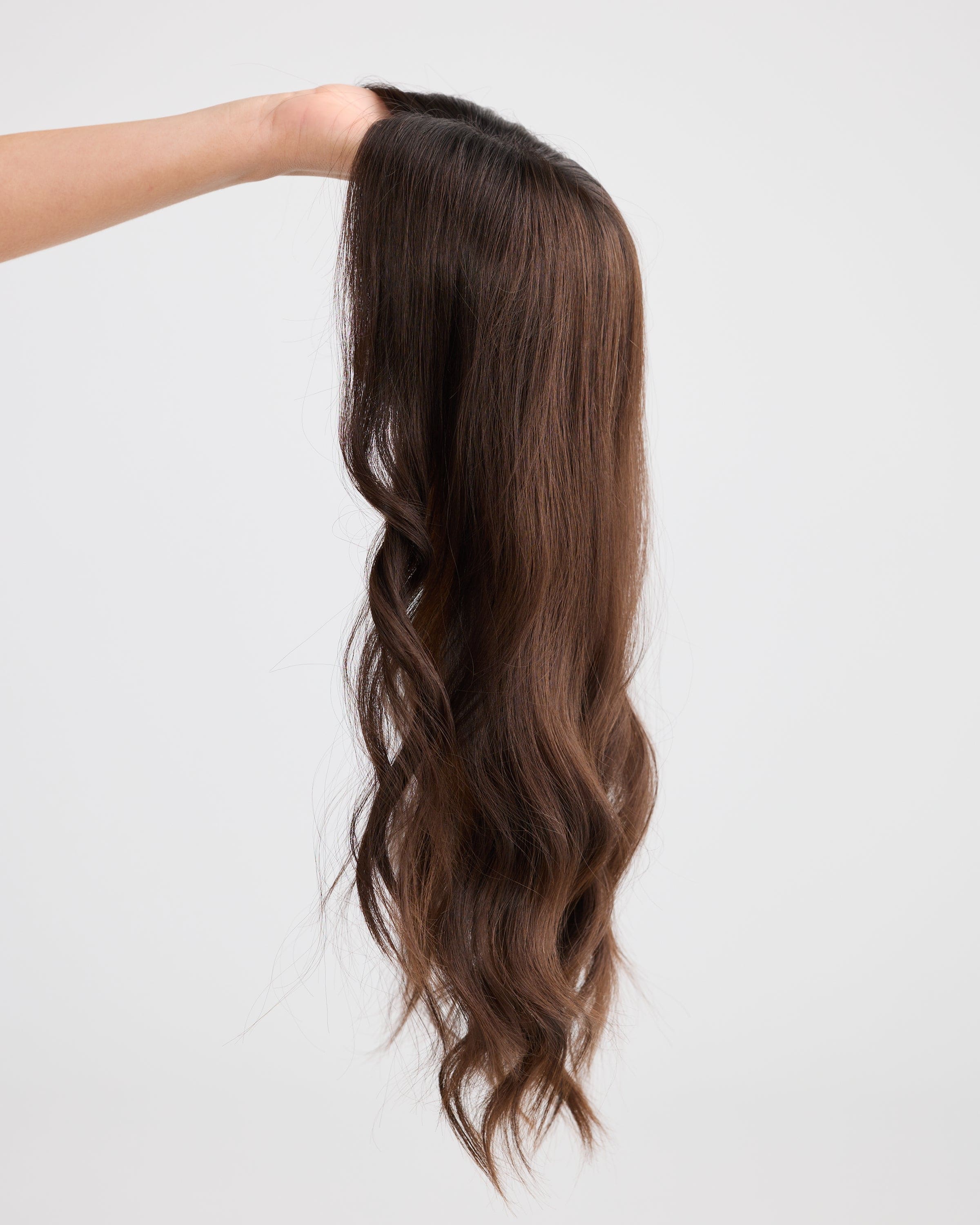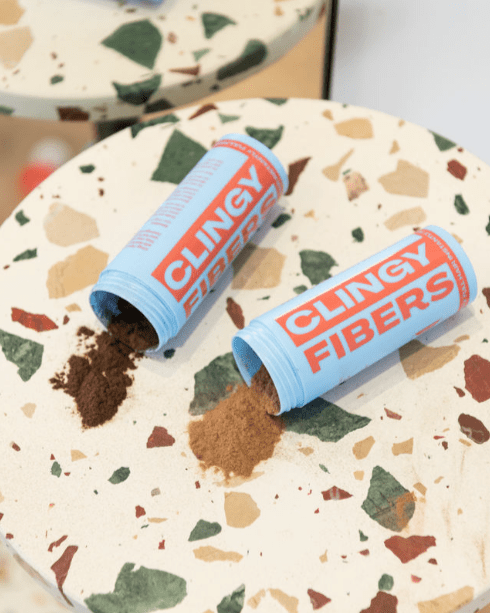At 19, when my hair began thinning, I found myself navigating a maze of questions, the most pressing being: why me? The next decade was characterised by trying every treatment under the sun to grow my hair back. For the longest time, I believed that my hair loss was due to my diet and the vitamins my body was, or wasn't, getting. I was convinced it was MY fault that my hair was falling out. That I was doing something wrong.
So, my bathroom cabinet was overflowing with just about every vitamin I could get my hands on. Over a decade later, I know that in my situation my hair loss was never due to a vitamin deficiency. I have androgenic alopecia, which is a genetic form of hair loss. No matter what treatments I try or vitamins I injest, my hair is not coming back. And that's okay! I've accepted it, and now get to have the best hair ever through toppers and wigs.
But, maybe your journey is different to mine. Maybe you're experiencing hair loss due to a vitamin deficiency. So, today I wanted to discuss the various vitamins that are associated with hair loss and hair growth.
Beyond the Pill: Understanding Vitamins
Forget the pill bottles for a moment. Vitamins, in essence, are intricate compounds vital for our bodily operations. Each one has its role, and an imbalance—whether deficiency or surplus—can leave noticeable impacts on our well-being, hair health included.
So, which vitamins play a role in our hair health?
-
Vitamin D: Sun’s Blessing: Often dubbed the "sunshine vitamin", our bodies synthesize Vitamin D when exposed to sunlight. However, modern lifestyles and gloomy climates can lead to its deficiency. This vitamin is pivotal for hair follicle vigor. A lack can result in dwindling follicle activity, leading to hair thinning or even bald patches. Embrace the sun, relish in vitamin D-rich foods, and if need be, consult a doctor about supplements.
-
Vitamin B12: Oxygen’s Best Friend: Our hair follicles thrive on oxygen, transported by red blood cells. At the heart of this process is Vitamin B12. A shortage can herald hair loss or even early greying. Particularly for vegans or vegetarians, it's crucial to monitor B12 intake, as its primary sources are animal-derived.
-
Iron: The Hair’s Breath: Think of iron as the vehicle for oxygen. When in deficit, our hair's oxygen supply diminishes, stunting growth and possibly leading to hair loss. Iron-rich foods can be a savior, especially for women who are more prone to iron deficiency.
-
Vitamin C: Fortifying Hair: Collagen, key to hair resilience, owes its production to Vitamin C. A deficiency can weaken hair structure. Thankfully, nature offers a plethora of Vitamin C-rich foods. Incorporate them into your diet for luscious, strong locks.
-
Vitamin A: A Two-Edged Sword: Essential for glowing skin and vibrant hair, Vitamin A can, if overconsumed, ironically instigate hair loss. The mantra here is balance.
-
Zinc: The Unsung Hero
In addition to the vitamins we touched upon earlier, Zinc deserves a mention. It plays a pivotal role in hair tissue growth and repair. It also ensures the oil glands surrounding our follicles work optimally. A deficiency can lead to hair loss, and in severe cases, can cause alopecia.
The Synergy of Vitamins and Minerals
Vitamins don’t work in isolation. There's a synergy between different vitamins and minerals that impacts our hair's health.
For instance:
-
Vitamin E and Vitamin C: Both these vitamins are powerful antioxidants. When combined, they can enhance our body's ability to combat oxidative stress, which can otherwise harm hair follicles.
-
Iron and Vitamin C: While we already touched upon the importance of iron for hair health, it’s Vitamin C that aids in its absorption, ensuring we reap the full benefits of the mineral
Lifestyle, Environment, and Their Roles
The vitamins and minerals we consume play their parts, but our external environment and lifestyle choices also weigh in heavily.
-
Pollution: Exposure to pollutants can damage hair health, making it more prone to breakage and reducing its luster.
-
Stress: Chronic stress can push more hairs into the Telogen phase, leading to more hair falling out. This process is known as Telogen effluvium.
-
Diet Choices: The phrase "You are what you eat" isn't just a catchy saying. A balanced diet, rich in all essential nutrients, provides the foundation for lustrous locks.
Delving Deeper: Hair Porosity and Care
Beyond vitamins and hair growth cycles, another critical concept is hair porosity. It's a measure of how well your hair can absorb and hold moisture. Depending on genetics and external damage, hair can be of low, medium, or high porosity.
Understanding hair porosity can influence how you care for your hair:
-
Low Porosity Hair: This type of hair has cuticles that lay flat, making it challenging for moisture to penetrate. It can become easily saturated and take longer to dry. To care for this hair type, using heat to open up the cuticles during deep conditioning can be beneficial. Also, lighter, liquid-based products often work best.
-
High Porosity Hair: Here, the hair cuticles are more open, making it easy for moisture to enter but also to leave. Such hair types can become tangled and are prone to frizz. To care for high porosity hair, using leave-in conditioners, creams, and butters can help retain moisture. Also, regular protein treatments can help in strengthening the hair.
The Role of Scalp Health
Our focus often narrows down to the hair strands, but the scalp plays a foundational role in hair health. A healthy scalp environment supports strong hair growth, while an unhealthy one can lead to issues like dandruff, seborrheic dermatitis, or fungal infections, all of which can potentially impact hair growth.
To ensure a healthy scalp:
-
Regular Cleansing: This ensures no product build-up or excess oil, which can clog hair follicles.
-
Massages: Regular scalp massages can stimulate blood flow, supporting healthy hair growth.
-
Avoiding Harsh Chemicals: Many hair products contain sulfates, parabens, and other chemicals that can irritate the scalp. Opting for gentler, natural products can be beneficial.
Journeying Towards Lustrous Locks
Grasping the vitamin-hair health dynamic is just the tip of the iceberg. Beneath this lies a labyrinth of genetics, environmental influences, and personal habits.
If hair loss is your challenge, realize that knowledge is power. Instead of jumping to conclusions, it's wise to consult a healthcare expert. They can demystify the complexities of the vitamin-hair relationship for you.
To wrap up, vitamins are undoubtedly vital for hair health, but they're part of a bigger picture. Holistic nutrition, dedicated hair care, and understanding your body's nuances are all key.



